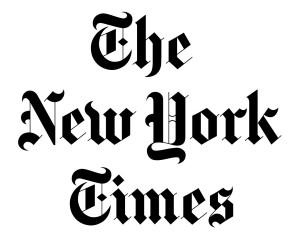02/14/2020
The Pop Break
‘Film About a Father Who’ Review: As Ambiguous as its Subject
By Marisa Carpico
Documentarian Lynne Sachs and her filmmaker brother, Ira Sachs Jr., have always made emotionally complex films. Whether its Lynne’s literal and historical exploration of Vietnam in Which Way Is East or Ira Jr.’s aching meditation on longtime love inLove is Strange, neither has been afraid to dig into ambiguity or tough subject matter. However, Lynne’s newest, Film About a Father Who, (which includes some footage shot by Ira) brings that unflinching honesty to a new level as it explores their complex relationship with their absent father Ira Sr. and the sprawling family his philandering has created.
Named for Yvonne Rainer’s Film About a Woman Who… which follows a woman’s sexual escapades and the resulting/motivating unhappiness in an abstract, montage-like way, Sachs’s film is similarly structured and culled from footage filmed on half a dozen different media from 1965 to 2019. Though Sachs tells her father’s story in roughly chronological order, she uses few of the documentary techniques we’re used to. Rather, what we see rarely synchs with what we hear and it can take a few minutes to grow accustomed to the film’s style.
However, while scenes where images of Lynne and her siblings at much younger ages play under recordings of them talking about their father in modern day may confuse some viewers, they’re also incredibly effective. Every scene examines not only their memories of their father, but how each child’s understanding of Ira Sr. changed over time. Watching an adolescent Adam (Ira Sr.’s son with his second wife, Diana) talk nervously if admiringly about his father contrasted with his more reserved assessment in present day is striking and the film delivers that level of brutal frankness again and again.
Indeed, though Sachs repeatedly expresses her adoration for her father, part of what makes her film so effective is how willing she is to criticize him too. Two scenes in particular stand out. The first shows Lynne interviewing Diana. Turned almost completely away from the camera and constantly on the verge of tears, we can hear just how much Ira Sr.’s cheating and lies hurt her, complicating and expanding the hurt Lynne and her sister Dana felt when they first met Diana on a trip to Bali they thought was just with their father.
The second comes much later, when one of Lynne’s half-siblings, Beth, hidden from the rest of the family for most of her life, explains that being around her siblings stings not just because she didn’t know them for so long, but because she resents the time and financial support Ira Sr. gave them. Listening to so many painful stories about Ira Sr.’s failings as a father, the audience naturally longs to hear him explain his actions, but that’s precisely the one thing Sachs never really manages to unpack.
Knowing that Lynne has been working on this film for 26 years, it’s easy to wonder why she doesn’t come to a more definitive conclusion about who her father is or what family means for her and her siblings. Some of that is, of course, Ira Sr.’s doing. One of the film’s most frustrating and memorable moments comes near the end, when Lynne tells Ira Sr. in voice over that because the newer audio will be better, she has to re-record some of what he’s said before. We expect the silence that follows to end with some revelation, whether about the trauma that made Ira Sr. so afraid of being emotionally frank or how he feels looking back on his behavior. Instead, the film goes on as it has before, allowing Lynne or the other siblings to speak about his effect on them. And while the choice emphasizes how much of a mystery Ira Sr. still remains, it can also leave the audience with a taste of the bitter dissatisfaction his children experience.
As viewers who only get to know Ira Sachs Sr. through the picture Lynne paints, it can be frustrating to hear him speak so little about why he lived the life he did or the emotional toll both his childhood and his sprawling progeny had on him. In a more straightforward documentary, not hearing his explanation would leave the film feeling incomplete. Yet because this is a personal story told by the children forced to come to terms with his behavior, preserving that ambiguity also, as Lynne herself puts it, preserves the truth. Both Lynne and we are perhaps no closer to understanding Ira Sr. by film’s end, but we at least know him as his children do and all things considered, that’s nothing short of miraculous.
https://thepopbreak.com/2020/02/14/film-about-a-father-who-review-as-ambiguous-as-its-subject/









